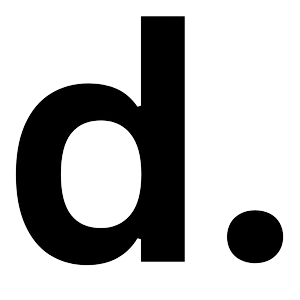How to stop losing clients to AI

Last year, Jimmy Daly, founder of Superpath, called the state of content marketing the content recession.
If what used to work in your business is no longer working, this is for you.
When AI, the economy, or anything else negatively impacts your business, I like to look at what levers are available to pivot and continue thriving.
You can:
a) change your strategy and approach to pitching clients
or...
b) change your offer
If you feel your business has suffered massively from AI or the content recession, now might be a great time to reconsider how you package your services.
Rethinking your offers
What do you do better than anyone else that a potential client needs but can't do internally? If you can answer that, it's no longer just about "freelance writing." Solve a specific problem for brands they have to hire you for that's attached to the client's desired outcome. Not just a copywriting deliverable.
In today's age of AI, writers are seeing more success landing clients when they pitch a service attached to an outcome. In the good old days, it was easy to pitch work as a copywriter, cranking out copy for brochures, blogs, newsletters, etc.
Is it still possible to land clients like this? Absolutely. But it's harder to do now.
There’s a better way to structure your offers.
Deliver a tangible ROI
What if..
Instead of just writing a blog post the client publishes on their website, you wrote an article published in a niche media outlet with a larger readership that gets them exposure to 10k new potential customers.
What if…
Instead of just writing ad copy, you could write the copy and launch and manage an ad campaign that brings in 100 new leads.
What if…
Instead of just writing social media posts, you offer a LinkedIn content package that grows an executive's audience by 100+ new followers each month, giving them more exposure to new potential customers.
See where I’m going with this?
If you were to offer a content package like this that's directly tied to the client's ROI, it would become much more appealing.
How else could you turn a service you love delivering into a complete package that will produce an attractive outcome for the client?
The freelance business model was broken to begin with
This change to the state of freelancing illuminates the bigger problem, which is the freelance business model in general.
Instead of mapping their offers back to a specific ROI or packaging their services around an outcome in general, historically, most have sold themselves as just "freelancers" who can do a little bit of this and a little bit of that.
There are several fundamental issues with this.
Positioning yourself as a commodity
For example, let's say you're a freelance copywriter. You write blog posts, newsletters, sales emails, social media posts, etc.
The client tells you what they need written and you get to work drafting up a bunch of deliverables. The problem is anyone on their team could do this if they are a halfway decent writer. Let's face it: they most likely hired you because they said they "just don't have the time to get it done internally."
In theory, that's all fine and dandy. Hiring a freelancer to outsource these projects and fill in the gaps in their internal team is fine. You can build a decent little business like this.
But at some point, you'll likely hit a plateau. You'll eventually hit a ceiling with your rates because, let's be honest, there's only so much you can charge for a blog or social media post.
I don't care how much money the client has. At some point, they won't justify premo fees for writing content. They'll either bring it in-house, look for another freelancer, or maybe even scrap the initiative altogether when their marketing team decides to "go in another direction."
That’s the first problem.
The second problem is that you don't really have much of a competitive advantage. Sure, you might have the specific industry experience they're looking for. But beyond that, alongside being a "good writer," what other differentiators do you have that get them to work with you over the other guy?
Maybe you reached them at the right time, and they happen to be looking for content support, so your email was timely. But again, timing is not a differentiator.
Maybe you're at capacity with your current client load but can't seem to raise your rates any further without clients and prospects balking. Or perhaps you keep getting passed up because the prospect decided to go with someone else with more experience or those industry-specific underwater basket weaving samples.
Regardless of your specific situation, the reason you feel stuck is the same.
So what are you supposed to do?
Why you feel stuck
You don’t have a strong enough differentiator.
If you want to build a super profitable, dare I say lucrative business, you need more than years of experience, solid writing clips, and industry-specific samples.
It might be enough to build an average business that pays the bills working with decent clients. But what if you want more than average?
What if you could build a business that:
- Pays you exceptionally well
- Offers stability with retainer clients, allowing you to earn great money without burning out
- Provides a specific service that lets you create efficient systems and processes, so your business runs like a well-oiled machine—no more juggling different projects for each client without any standardization
- Is profitable enough to give you the flexibility to hire help, whether it's a VA, editor, proofreader, or another writer, freeing up even more of your time
Doesn't that sound like a better business than the average freelancer juggling too many projects for too many clients on their own, with too much variety in their scope of work?
If this all sounds too good to be true, it's not. You just need to change how you think about your business and how you sell your services.
Here's how.
Freelancer → creative entrepreneur
I've touched on this idea in a recent article about how most freelancers f*ck up, but I think it's imperative to stop thinking of yourself as a freelancer and start thinking of yourself as a business owner. A creative entrepreneur. That's what you truly are.
Why is this important?
Most freelancers have the same mindset.
They have particular skills like writing, graphic design, web dev, underwater basket weaving, etc. So what do they do? They pimp these skills out to the highest (or lowest) bidder in any which way, shape, or form the client is willing to pay for it in.
Again, this works if you want to build an average business. But we're not willing to settle for an average business. That's not why we got into this in the first place.
We want to build an asset that you can leverage to gain control over your time and income because the combination of the two is the ultimate hat trick for entrepreneurs: freedom.
Time + money = freedom
So, if you're chasing freedom, hear me out.
Any other entrepreneur starting a more "traditional business" doesn't begin like a freelancer. They don't sell their skillset ten different ways till Sunday.
They usually develop a small list of services or products that appeal to a specific customer segment and then build systems and processes to repeatedly deliver that product or service.
Their product or service is also typically tied to solving a specific problem or delivering some ROI. A freelancer's services should do the same.
Look at a traditional business model
Let's say you call a roofing company. They'll come to your home or business and install a new roof. But don't expect them to offer siding, windows, or new doors just because you asked, or your place could use it.
Why? Because they specialize in roofing. They've honed their skills over years, perfecting their processes, systems, and team training to deliver the highest-quality roof in the most efficient way possible.
When they show up, it's because you've got a specific problem—maybe hail damaged your roof, or there's a leak. They're there to fix that issue.
Most homeowners don't just wake up one day and decide to hire a roofer for fun. There's usually an urgent need driving that decision—something that needs fixing and fast. That's what gets them to open their wallets.
Freelancers should think the same way. How can you package your services to solve a specific problem for a particular set of people or deliver a specific ROI from your work?
If you can package your offer this way, it's much more attractive to potential clients.
The bottom line
Find a way to package your skillset that delivers a tangible ROI for the client, not just a set of deliverables.
If you can do that, you're now operating like a true entrepreneur. When you do this, you remove all of the barriers that the "average" freelancer continues to struggle with.
Dan's Dispatch Newsletter
Join the newsletter to receive the latest updates in your inbox.




